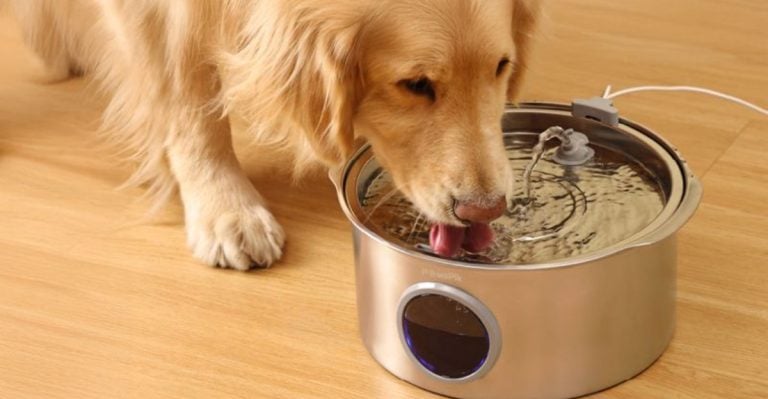What Dog Owners Should Know About Dental Chews And Oral Health

Dental chews are more than just tasty snacks—they’re functional tools that support your dog’s oral health. With options ranging from plant-based to grain-free, each variety brings its own unique benefits. Keep reading to learn how they work and how to use them effectively—small changes that can make a big impact on your dog’s dental care and overall health.
Chewing Reduces Plaque And Tartar

The abrasive texture of dental chews helps mechanically scrape plaque and tartar off a dog’s teeth during chewing. This action is similar to brushing and can significantly reduce buildup when used regularly. Consistent use also supports healthier gums and lowers the risk of periodontal disease, which affects many adult canines.
Not A Substitute For Brushing

While dental chews offer valuable oral health support, they should not replace regular toothbrushing. Brushing with dog-safe toothpaste remains the most effective way to remove plaque. Dental chews are best used as a supplemental aid, especially as part of a broader dental hygiene routine.
Look For VOHC Approval

Clinically tested chews with the Veterinary Oral Health Council (VOHC) seal are effective at reducing plaque and tartar. This certification ensures the product meets specific veterinary standards. Without VOHC approval, there’s no guarantee a chew will improve dental health.
Ingredients Impact Effectiveness

The quality and composition of dental chews play an important role in their safety and performance. For instance, chews made from natural, digestible ingredients are easier on dogs’ stomachs and less likely to cause complications. Furthermore, components like enzymes or chlorhexidine can boost oral benefits and help fight bacteria.
Dental Chews Can Freshen Breath

Bad breath in pups often stems from bacteria and food residue trapped in the mouth. In this case, dental chews help reduce odor by removing debris and limiting bacterial growth on the teeth and gums. Some are also infused with breath-freshening ingredients like mint or parsley.
Chew Size And Texture Matter

The size and hardness of a dental chew should match your dog’s age and chewing habits. Chews that are too small or soft may be ineffective, while overly hard ones can cause tooth fractures. Also, carefully select chews tailored to your dog’s needs to ensure both safety and dental benefits.
Early Use Prevents Long-Term Issues

Introducing dental chews early in a dog’s life can help establish strong oral hygiene habits and prevent future dental problems. Starting young reduces the chance of severe tartar buildup and gum disease later on. By getting puppies accustomed to dental chews, they are more likely to keep their teeth and gums in good condition into adulthood.
Monitor Chew Time To Avoid Overuse

While dental chews are beneficial, excessive chewing—especially on hard treats—can lead to tooth fractures or gastrointestinal blockages. Pet owners should supervise their animals during chew sessions and limit duration based on the product guidelines and their dog’s chewing strength. Monitoring helps maximize benefits while minimizing health risks.
Prevents Oral Bacteria From Impacting Vital Organs

Beyond the mouth, harmful bacteria from dental infections enter the bloodstream and infect organs like the heart and kidneys. This process, called bacteremia, may contribute to chronic inflammation and more serious health complications. Dental chews help limit bacterial buildup and potentially lower the risk of systemic spread and organ strain.
Daily Use Offers Best Results

Dental chews should be given daily or as recommended by your veterinarian. Infrequent use may offer minimal results, while regular chewing helps maintain a consistent reduction in plaque and tartar. Dog owners should establish a daily routine that makes dental chews a reliable part of their dog’s oral health care.
Ideal For Dogs Who Hate Brushing

Many pets resist toothbrushing. This makes dental chews an excellent alternative for maintaining oral hygiene. They’re easier to administer and more enjoyable for the dog, especially when flavored or textured. While not as thorough as brushing, the chews still provide an option for owners struggling with traditional dental care routines.
Flavors Can Encourage Chewing

Dental chews come in various flavors, like chicken or peanut butter, which appeal to pets and encourage consistent chewing. However, pet owners should monitor calorie content, especially for dogs on weight management plans or with dietary restrictions. Choosing a flavor your dog loves can make dental care feel like a reward.
Wrong Chews Can Negatively Impact A Dog’s Health

Some dogs may have allergies or sensitivities to ingredients commonly found in dental chews. Others might experience digestive issues due to certain additives. If your dog has known food intolerances or health conditions, reading ingredient labels carefully and consulting your vet before introducing a new chew is crucial.
Regular Vet Checks Still Necessary

Even with high-quality dental chews, professional dental checkups and cleanings remain essential. Veterinarians can detect issues like disease or oral tumors that chews cannot address. Therefore, combining dental chews with regular vet visits ensures a holistic approach to your dog’s dental and overall health care.
Store Chews Properly To Preserve Quality

Improper storage can reduce the effectiveness and safety of dental chews. Exposure to moisture or heat may cause them to spoil. Always seal packages tightly and store them in a cool, dry place. Following the manufacturer’s guidelines ensures your dog receives the full benefit of each chew without risk.






